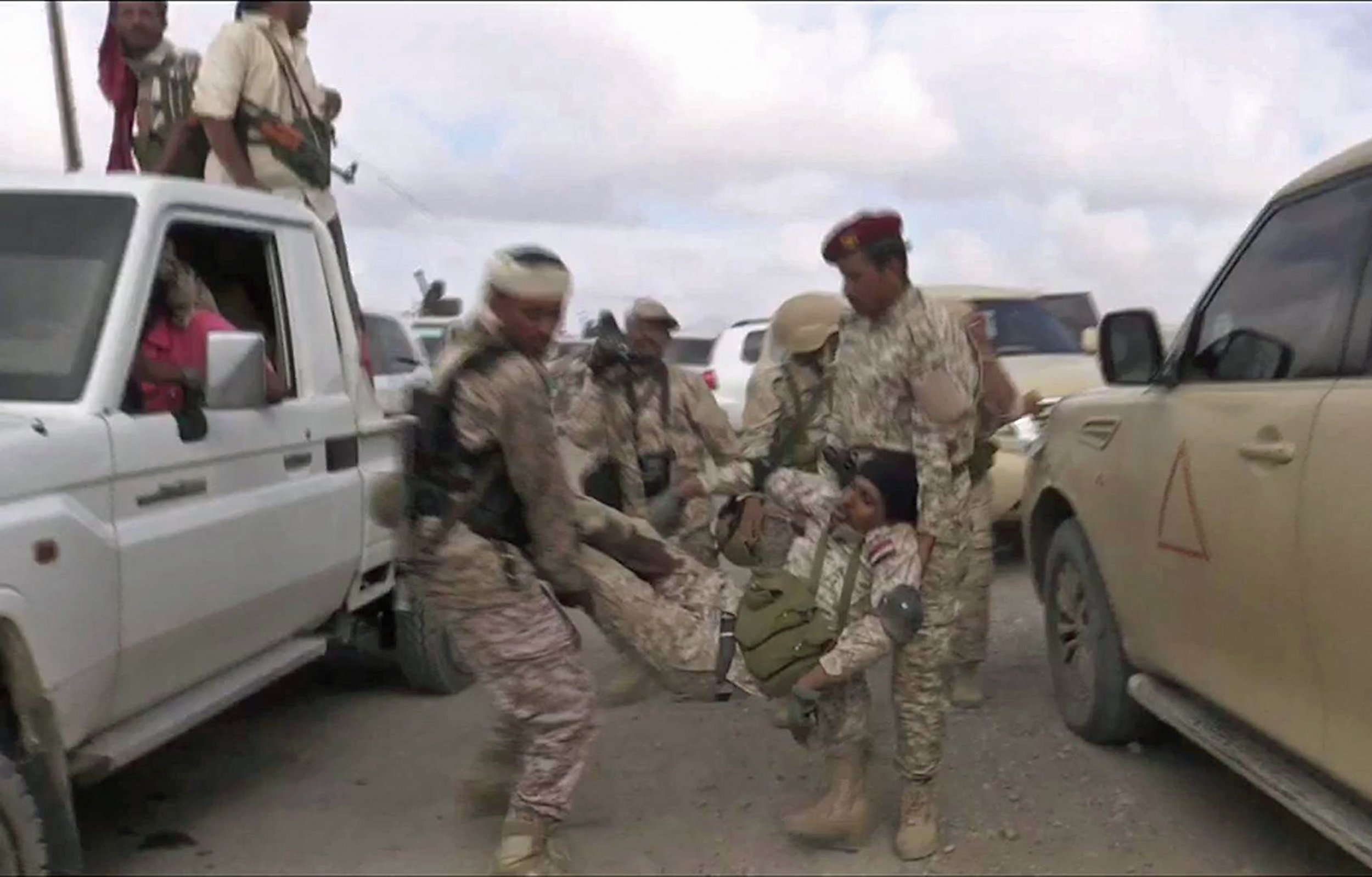
Houthi rebels in Yemen attacked a loyalist military parade Thursday, using a suicide drone that killed at least six soldiers and injured another 12.
The audacious attack, which was captured on video by a bystander, targeted the al-Anad base in the country's southern Lahj Province, the BBC reported.
Read More: Why are militants using drones? UAV weapons have spread far beyond nation states
Among those injured were Army Chief of Staff General Abdullah al-Nakhi and Lahj Governor Ahmed Abdullah, according to Sky News Arabia.
The video—published by Agence France Presse—appears to show a single drone buzzing down a covered stand in which military personnel were sitting. It then exploded high above the structure, showering those below with shrapnel and debris. As troops scatter in confusion, at least one man can be seen with blood pouring from a wound to the back of his shoulder.
The Houthi-backed Al-Masirah television station said the attack had targeted officials of the Saudi Arabia-led alliance, which is fighting the Houthis on behalf of the Yemeni government. Local hospital sources confirmed the casualty figures to AFP.
Les images de l'explosion d'un drone pendant une parade militaire dans une base loyaliste du sud du #Yémen. Six militaires ont été tués et 12 autres personnes, dont des officiers et des responsables locaux, blessées, selon un hôpital local #AFP pic.twitter.com/qn4kEcVYrD
— Agence France-Presse (@afpfr) January 10, 2019
According to the Middle East Eye, the al-Anad facility is Yemen's largest air base. It served as a headquarters for U.S. drones in Washington's campaign against Al-Qaeda in Yemen until March 2014, when it was captured by the Houthis. Loyalist forces retook the base in 2015 with the assistance of the Saudi-led coalition.
The Houthis have regularly used drone and missile attacks in their war against the Yemeni government and its well-armed Saudi-led backers. They vowed in November to halt such attacks to adhere to a United Nations-brokered cease-fire around the strategic port city of Hodeidah, but tensions have risen once more over how to implement the deal.
Yemen's information minister, Moammar al-Eryani, said the drone attack showed the Houthis are "not ready for peace." He called on "the international community to stand by the legitimate government and force the militias to give up their weapons and pull out of the cities."
As many as 56,000 people are estimated to have been killed in the conflict, according to the Armed Conflict Location and Event Data Project—an independent monitoring group. The United Nations' estimated toll is far lower at around 10,000, though this figure has been disputed. Millions more have been left starving as airstrikes destroy vital infrastructure and military campaigns cut key supply routes.
The Iranian-backed Houthis make up around one-third of the Yemeni population and follow a Shiite Islam sect known as Zaydism. Former rulers of the country, the tribe was deposed in the early 1960s.
After six unsuccessful uprisings between 2004 and 2009 and following the upheaval of the Arab Spring, the Houthis left their heartland in the northwest of the country and seized the capital Sana'a in September 2014, forcing President Abdrabbuh Mansur Hadi to agree to a power-sharing deal.
Plans to federalize the country led to further violence, with the Houthis seizing the presidential compound and establishing an interim revolutionary government over which they had full control. When Hadi escaped from house arrest in 2015, full-scale civil war erupted.
The Saudi-led coalition joined the war in 2015, arguing that the Houthis are a proxy force for Riyadh's arch-rival Iran. The United Arab Emirates is also a key member of the alliance.
Western nations, including the U.S. and U.K., have given the coalition significant logistics and intelligence support, despite suggestions that its widespread and reckless airstrikes constitute war crimes. Support includes supplying state-of-the-art weaponry and assisting in airstrike target selection.
Uncommon Knowledge
Newsweek is committed to challenging conventional wisdom and finding connections in the search for common ground.
Newsweek is committed to challenging conventional wisdom and finding connections in the search for common ground.
About the writer
David Brennan is Newsweek's Diplomatic Correspondent covering world politics and conflicts from London with a focus on NATO, the European ... Read more
To read how Newsweek uses AI as a newsroom tool, Click here.








